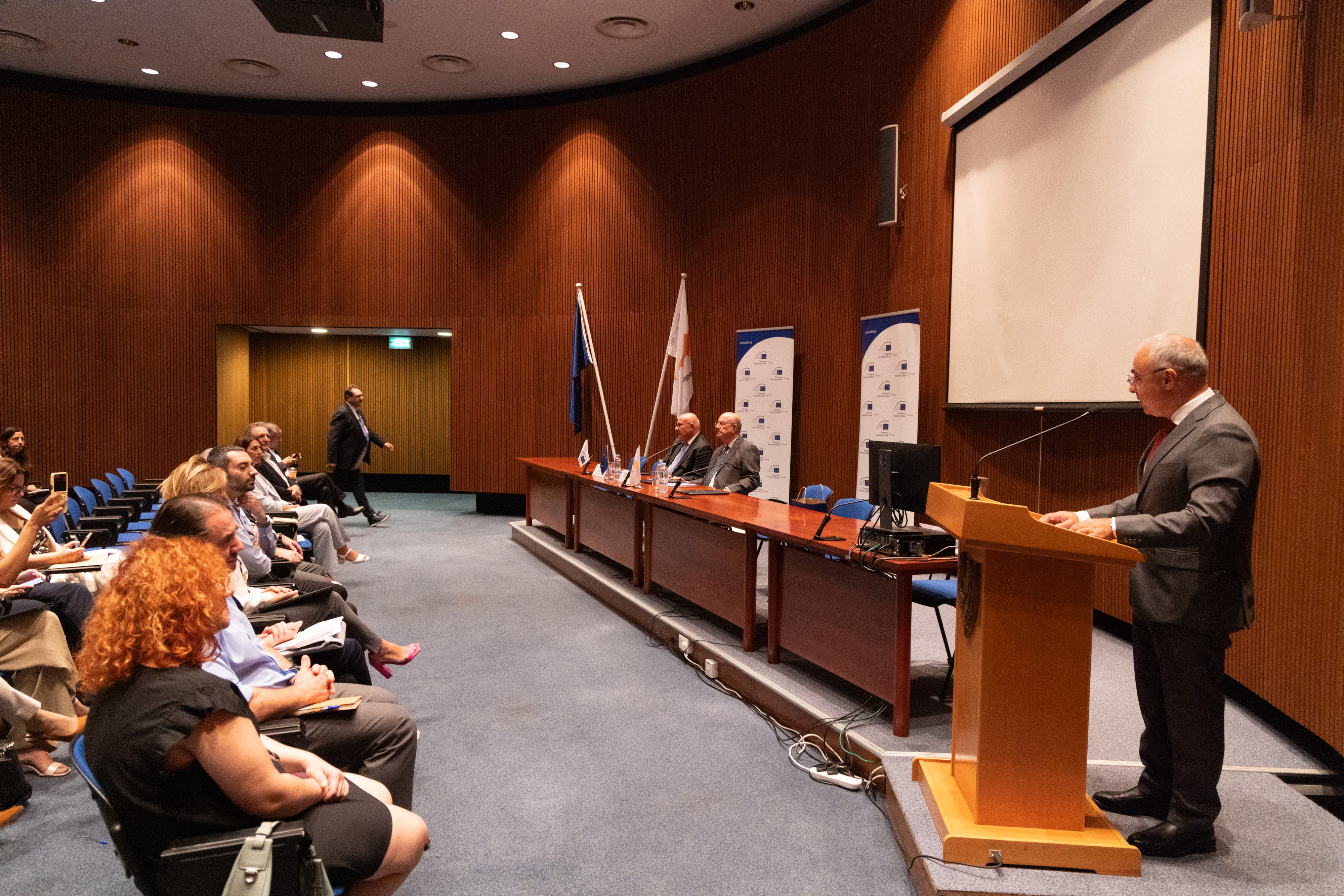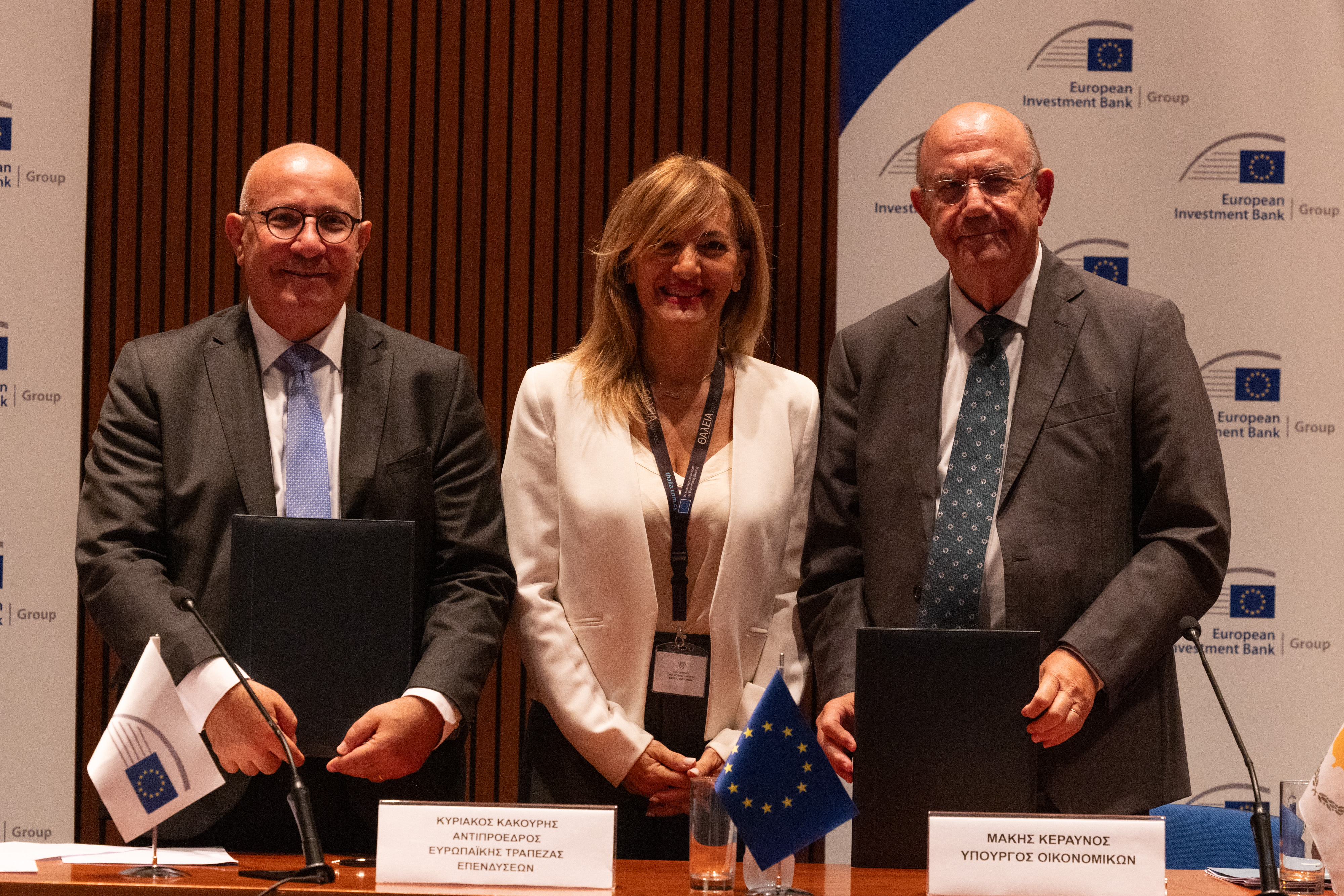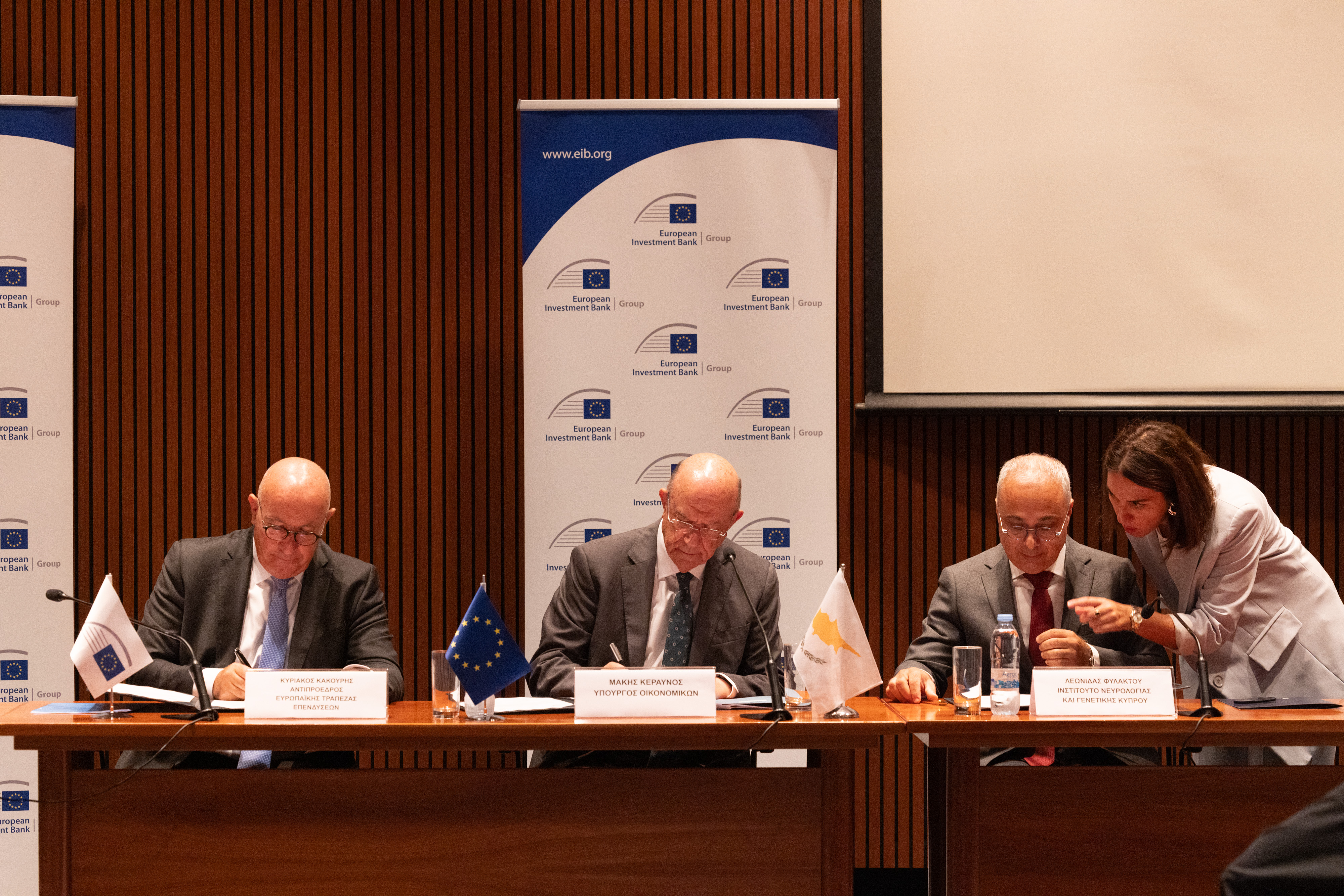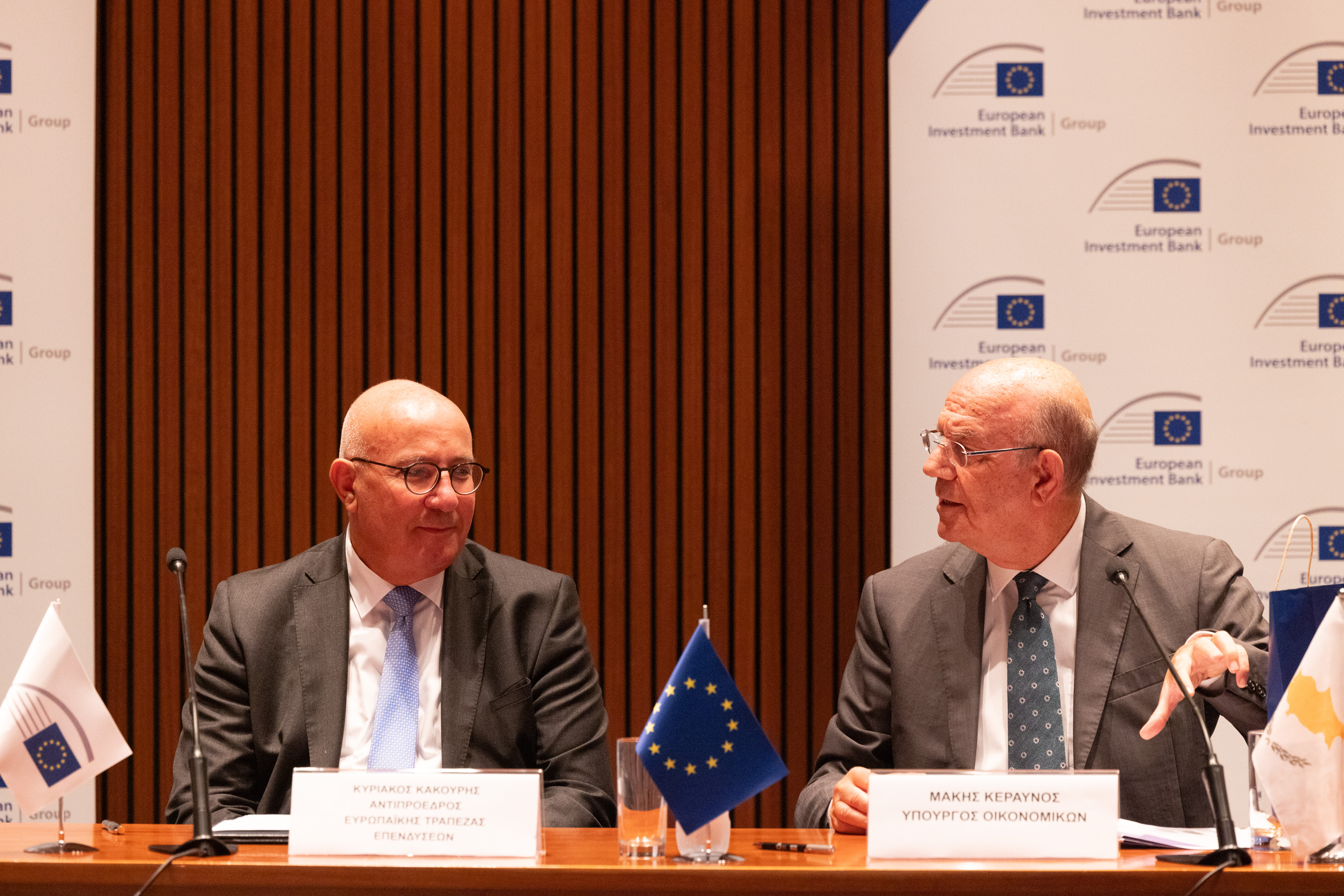Agreements include €5m for new CING research building and €50m for Thalia 2021–2027 programme
Two financing agreements totalling €55 million were signed on Thursday by Finance Minister Makis Keravnos, EIB vice president Kyriacos Kakouris and CING chief executive Leonidas Phylactou.
At the signing, which took place at the Finance Ministry in Nicosia, Keravnos underlined the importance of the relationship developed between the EIB and the Republic of Cyprus.
He described it as “a relationship based on common principles, values, and mutual trust“.
“Through the long-standing support of the European Investment Bank, Cyprus has been able to implement projects of substantive importance which boost growth, improve citizens’ quality of life and lay the foundations for a more resilient and sustainable future,” Keravnos said.
The first agreement signed at the ceremony concerns additional financing of €5 million for CING, bringing the total EIB support for the institute to €31 million.
The loan will be accompanied by an additional state guarantee from the Republic of Cyprus, and its repayment will be covered through the increased grant allocated to the institute, Keravnos explained.
The project includes the construction of a new building to accommodate research and development projects, Keravnos explained.
“The expansion of the Cyprus Institute of Neurology and Genetics will significantly enhance the country’s research capabilities, contribute to the development of the research and innovation sector, and improve Cyprus’ performance in relevant indicators,” he said, stressing the ministry’s support for the project.
On his part, Kakouris stated that the result of such a project “would be better treatments for patients, more reliable and advanced care, and new prospects for researchers and scientists”.

He added that the EIB “considers the project a flagship for Cyprus and expressed satisfaction that it is now in its final stages of implementation”.
Meanwhile, Phylactou said that the construction of the new building is expected to be completed by the end of November and will be delivered before Christmas.
“It is an investment in science, in innovation and in humanity itself,” Phylactou said.
“It is an investment that does not only benefit the scientific community but also gives back to society, not only in the health sector but also in the economy, education and internationalisation,” he added.
He further explained that the new building will enable the institute to host six new research teams, four of which will begin work on November 1, 2025.
The new research teams will focus on key areas of medical science, such as neurological and genetic disorders, as well as medical technologies.
“The recruitment of the team leaders has already been completed and full staffing will follow shortly,” Phylactou said.
He went on to say the creation of the new research teams “will create jobs for young scientists, strengthen cooperation with international centres, and attract more students, turning Cyprus into a reference point for biomedical research”.
The second agreement includes the granting of €50 million for the Thalia 2021–2027 programme, which is the main mechanism for utilising EU cohesion policy funds in Cyprus.
“The investments financed through the programme are expected to contribute in the medium term to an increase of about 5.9 per cent in the country’s GDP and the creation of about 8,500 new jobs by 2029,” Keravnos said.
Kakouris stressed that through the Thalia programme, projects are developed which “truly change the daily lives of citizens“.
He mentioned examples such as energy management plans for municipalities, the modernisation of schools, universities and research infrastructures, the development of digital public services, and projects that strengthen sustainability and resilience against the climate crisis.
“At the same time, with the Thalia programme we are supporting smarter, greener and fairer development for the whole country,” he stated.


Anthi Philippidou, director of planning at the Finance Ministry, said that “the long-term and constructive cooperation with the European Investment Bank has played a decisive role in supporting Cyprus’ efforts to implement cohesion policy programmes”.
She added that “the signing of this financing agreement is a significant milestone in the implementation of the programme, which substantially contributes to strengthening growth, creating jobs and promoting social cohesion”.
During the signing ceremony, and on the occasion of the upcoming completion of Kakouris’ term as EIB vice president next month, Keravnos expressed his appreciation for the role he has played.
“His contribution leaves a permanent and positive mark for Cyprus and its citizens and I am confident that the legacy he leaves will continue to bear fruit in the future,” Keravnos said.
Kakouris said that his two-year term had been “very productive“.
In addition, he stated that as the first EIB vice president from a small country, he represented “not only Cyprus but also other small states“, such as Malta, Luxembourg, and the Baltic countries, which until now had not had the opportunity to be represented in the EIB.






Click here to change your cookie preferences